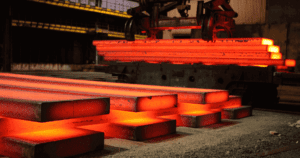
The United States will return to Ukraine, Romania, Hungary and Slovakia funeral scrolls and manuscripts stolen by the Nazis from Jewish synagogues and homes in Europe during the Holocaust, according to the website of the U.S. Department of Justice.
“Countries will return 17 funeral scrolls, manuscripts and other historical documents dating from the middle of the 19th century to the Second World War. They were confiscated from Jewish communities and disappeared during the Holocaust. The artifacts were found through a Brooklyn auction house that offered them for sale,” the U.S. Department of Justice said.
It is noted that the artifacts contain invaluable historical information that belongs to the descendants of families who lived in Jewish communities before the Holocaust.
At first, the artifacts were going to be auctioned in New York, but they were confiscated.
The auction house Kestenbaum&Company, in consultation with the World Jewish Restitution Organization, removed the artifacts from the auction.

The city of Odesa in June this year attracted five-year loans from the state-owned Oschadbank, Ukreximbank and Ukrgasbank for a total of UAH 1.2 billion, and the cities of Lviv, Novomoskovsk and Khmelnytsky – three more five-year loans for UAH 350 million.
According to the information of the Ministry of Finance on its website, apart from Khmelnytsky, all loans were obtained at a floating rate pegged to the key policy rate of the National Bank of Ukraine.
In the case of Odesa, the loan price was the NBU key policy rate + 4.5%: Oschadbank and Ukreximbank each allocated UAH 450 million, and Ukrgasbank – UAH 300 million.
Lviv managed to attract funds the cheapest of all – UAH 220 million from Ukrgasbank at the NBU key policy rate + 2.5%, while the smaller city – Novomoskovsk (Dnipropetrovsk region) raised UAH 70 million from Ukreximbank at the NBU key policy rate + 5.3%.
Khmelnytsky was able to get UAH 60 million from Ukrgasbank at 11.9%.
MAIN TRADE PARTNERS OF UKRAINE IN % FROM TOTAL VOLUME (IMPORT FROM OTHER COUNTRIES TO UKRAINE) JAN- APRIL 2021


Following the results of the work of metallurgical enterprises in June 2021, Ukraine increased steel production by 3.4% compared to the same period in 2020, to 1.870 million tonnes, remaining in the 14th place in the ranking of 64 countries – the main world producers of these products compiled by the World Steel Association (Worldsteel).
In June, an increase in steel production versus June 2020 was recorded in all countries of the top ten.
The top ten steel-producing countries in June 2021 was as follows: China (93.880 million tonnes, an increase of 1.5% compared to June 2020), India (9.362 million tonnes, an increase of 21.4%), Japan (8.108 million tonnes, an increase of 44.4%), the United States (7.144 million tonnes, an increase of 44.4%), Russia (6.350 million tonnes, an increase of 11.4%), South Korea (5.969 million tonnes, a rise of 17.3%), Germany (3.421 million tonnes, an increase of 38.2%), Turkey (3.355 million tonnes, an increase of 17.9%), Brazil (3.120 million tonnes, an increase of 45.2%) and Iran (2.470 million tonnes, an increase of 1.9%).
They are followed by Italy (2.179 million tonnes, an increase of 20.1%), Vietnam (1.970 million tonnes, an increase of 42.8%), Taiwan (PRC, 1.875 million tonnes, an increase of 11.2%), Ukraine (1.870 million tonnes). tonnes, an increase of 3.4%) and Mexico (1.640 million tonnes, a rise of 48.1%).
In general, in June this year, steel production grew by 11.6% compared to the same period last year, to 167.920 million tonnes.
In general, in H1 2021, 64 countries produced 1.004 billion tonnes of steel, which is 14.4% more than in the same period last year.

Spain will open for citizens of Ukraine on July 27 in accordance with the recommendations of the EU Council, Ukrainian Foreign Minister Dmytro Kuleba said.
“Spain will open for Ukrainians from July 27 in accordance with the decision of the EU Council. Visa-free travel returns. Freedom of travel for Ukrainians is among the priorities of the Foreign Ministry,” Kuleba wrote on his page in Twiiter on Saturday.
The minister said that upon entering the country, it is necessary to present a certificate of complete vaccination or a fresh negative test for COVID-19.

Ukrainian athlete Daria Bilodid in the weight category up to 48 kg brought Ukraine the first Olympic medal at the Olympic Games in Tokyo.
According to the National Olympic Committee of Ukraine, this is the first award in women’s judo in the history of independent Ukraine.
“Already in the first fight at her debut Games, the 20-year-old Ukrainian made all her fans jittery, but in the last seconds of the meeting she managed to win in Milica Nikolić from Serbia. The last world championships, Bilodid against Japan’s Funa Tonaki, unfortunately, in the second minute of extra time, the Ukrainian lost and lost the chance to get to the final,” the committee.
Thus, already in the battle for the “bronze” Bilodid with Shira Rishony from Israel won. This is the first medal of the Ukrainian national team at the 2020 Olympic Games.
The 2020 Olympics officially kicked off on July 23 and will run until August 8.
The Games were originally supposed to take place last year, but have been postponed due to coronavirus (COVID-19) pandemic.